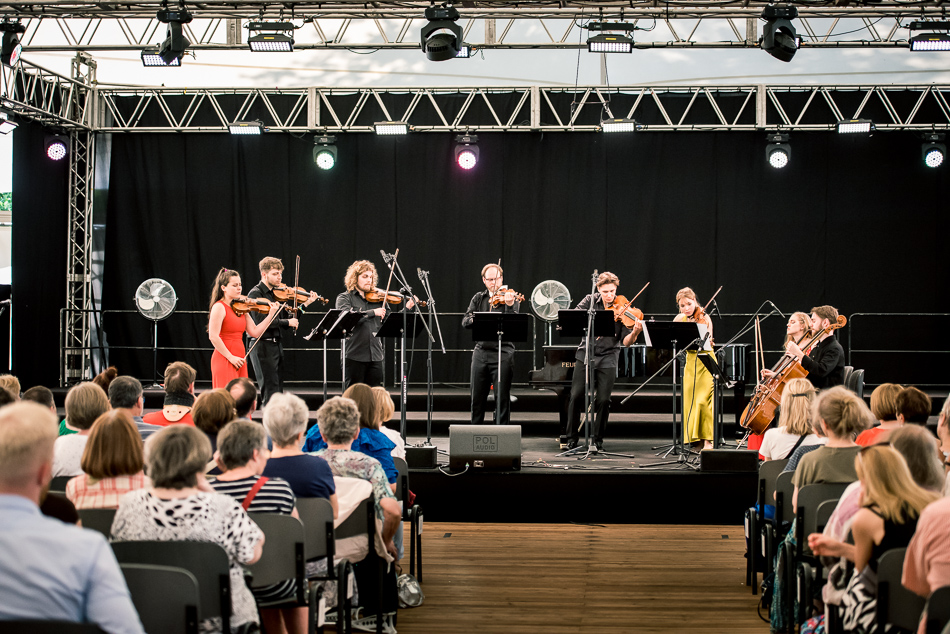LI
BRARY
LIBRARY OF EXPERIENCES
REPOSITORY
PERFORMERS
PROGRAM
Edvard Grieg String Quartet No. 2 in F major, EG 117
I. Sostenuto – Allegro vivace e grazioso
II. Allegro scherzando
Johan Svendsen Allegro risoluto ben marcato from String Octet in A major, Op. 3
– intermission –
Juliusz Zarębski Piano Quintet in G minor, Op. 34
I. Allegro
II. Adagio
III. Scherzo: Presto
IV. Finale: Presto
The chamber music concert Pictures from the Norwegian Arcadia is a part of a larger project developed by Sinfonia Varsovia and its Norwegian partners in 2022–2023. This particular project involves collaboration between young performers selected by the project partner Kunst & Musikk Festival in Stavanger and young chamber musicians of Sinfonia Varsovia. Musicians from both countries will perform together works by Edvard Grieg and Johan Svendsen, representatives of the Romantic Norwegian national school. Svendsen’s String Octet, a work of truly symphonic architecture and length, was written during the composer’s studies in Leipzig in 1866 and achieved great success. The prestigious publishing house of Breitkopf & Härtel was interested in publishing the score, which at the time was an extraordinary achievement for a young composer. Svendsen wrote high-quality chamber music only in the first period of his career, later devoting himself to larger orchestral forms and conducting. He was regarded as the most important Scandinavian conductor of the last decade of the 19th century. Edvard Grieg, the author of such classics as the Piano Concerto or the music for the stage version of Henryk Ibsen’s Peer Gynt, also wrote two surviving string quartets. He had an individual approach to this form; he liked to write vigorous, engaging melodies of folk provenance which brought satisfaction both to performers and listeners. Such is the case with his String Quartet No. 2 of 1891, which the composer abandoned after quickly completing the first two movements. “This cursed unfinished quartet still lies there like old Norwegian cheese,” he wrote. The tormented Grieg returned to the work after fifteen years, but did not manage to complete it. This was done by his student, but today the two-movement work is regarded as complete. In the concert’s finale, the foreign guests will present their own interpretation of the most outstanding work of 19th-century Polish chamber music, Juliusz Zarębski’s Piano Quintet. In today’s circumstances, it is worth remembering that its author came from Zhytomyr, a city that suffered considerable losses during the ongoing Russian invasion of Ukraine. Et in Arcadia ego…


Working together for a green, competitive and inclusive Europe.







